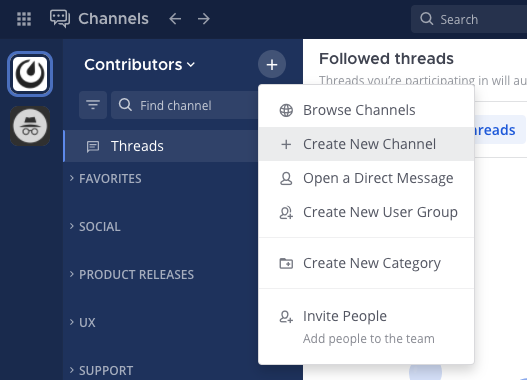- What does it mean to network using social media?
Networking is a professional skill that builds, maintains and activates a connection with preferred groups of people for the purpose of sharing knowledge and improving learning (What is a personal learning network (PLN)?, n.d.). Small study group in class is a form of network, however, climate changes such as COVID-19 dramatically reduce the opportunities for in-person networks, especially for students living in distanced areas. Thus, emerging technologies, for example, social medias become the bridge for communications among students, even across far distances. Network using social media is a innovative way for students to conduct asychronous communication and learning with others via text messages, comments, and videos.
EDCI 338 is a great example of networking using social media. Students use Mattermost, a social media platform to network and communicate in preferred groups by building separate channels and sharing resources in the group chat. Although students may be located in different cities, provinces or even countries, Mattermost still allows them to and seamlessly connect with preferred people, and improve learning together.

2. How are we motivated to participate in networked publics?
Take me as an example, my motivation to participate in networked public is my orientation for knowledge and learning outcomes improvement. When I write an essay alone, I used to always stuck during the process due to limited topics that I could think of, limited details to develop the thesis, and also difficulties to find resources for references. As long as I was stucked, I started to struggle with the essay and felt anxious. The motivation raised since I realized that reaching out to my classmates might provide different perspectives and more insights. Thus, I connected with a few of classmates , added them all into a group chat, and asked them for their suggestions. Immediately, they provided diverse perspectives of thoughts based on their own experience, which opened and wided my eyesight, and made the selection of topics and the detail content much easier. I realized communicating with a group of people sharing similar values and backgrounds effectively resolved the self-learning-caused mind limitations and improved the learning outcome. Since then, a networked learning became my routine learning improvement method. I also paid attention to always maintain the network I built, and activated the connections when needed.

3. What are the risks & rewards of public communications?
The major risk for public communication is the concern of privacy and information security. With the increased use of technologies and social media as public communication tools, leak of private information is highly possible to occur. From the texts, pictures and videos people posted on social media, others are able to grasp and learn about individual’s information even when people are unaware. ‘Privacy is networked’. What people post on social media may also leak others’ information (Boyd, 2012). For example, if I post a picture of me standing in front of Effiel Tower, a number of strangers may be captured by the photo and are unawarely posted by me to my networks on social media, which is a privacy issue since not everyone wants to expose themselves to strangers.
But rewards also exist for public communication. Apart from improving learning, networking and communicating with others could improve expression skills, and develop leadership and inter-person coordination skills. As long as I started to maintain and activate my learning network group, I saw my progress in organizing my speaking and cultivating collaborative leadership through expressing thoughts with the group, and organizing group learning activities.

Comment:
Reference:
Boyd, D. (2012). Networked privacy. Surveillance & Society, 10(3/4), 348–350. https://doi.org/10.24908/ss.v10i3/4.4529
What is a personal learning network (PLN)? FutureLearn. (n.d.). Retrieved January 20, 2023, from https://www.futurelearn.com/info/courses/learning-network-age/0/steps/24644
Leave a Reply